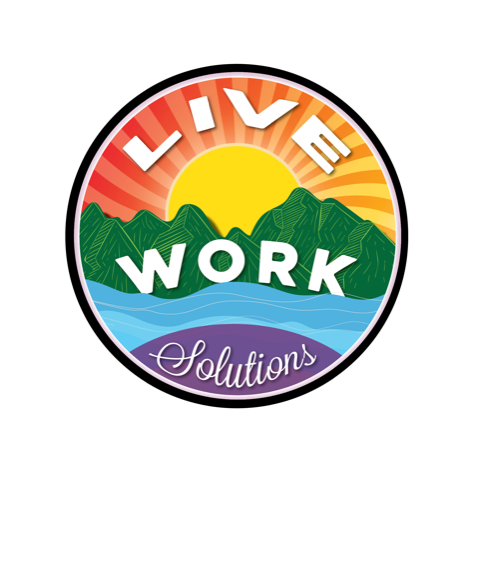Life has always been uncertain. We have never known what tomorrow will bring, but we’ve taken refuge in the patterns and seeming predictable nature of our days. The COVID-19 crisis, with its mandated social isolation and pervasive threat of infection, has created an atomic fusion of mind-numbing monotony, clashed with a daily dose of existential crisis.
With the widest lens, this pandemic is a clarion call to see the deep roots of our interdependence. On a smaller scale, it shines a spotlight on the best and worst of our social structures. On a personal level, we are all facing the challenge of remaining physically and emotionally resilient as we weather this storm.
The following are some mental health directives to help adapt to the daily (hourly!) seismic shifts in our internal microcosmos, without succumbing to despair.
1. Acknowledge the Pain - Denial is like a shapeshifter for pain; it turns into something other than its true form. For example, if you’re feeling scared about a statistic you heard on the news, but are too preoccupied to take a breather, you might just snap at the next person who interrupts your flow. Objectively, that person may have done something annoying, but under duress, it boils your blood! Today: Take time to sit with your feelings. It doesn’t have to be a formal meditation session. It can take the form of; a few intentional deep breaths in and out, putting your hand on your heart for a silent invocation, or writing some thoughts in your journal.
2. Make time for Joy - Yes, there is tremendous suffering in the world and today and it seems like it’s right outside your door. However, dwelling only in darkness, prevents us from recharging our inner light. One of the most effective ways to boost your immunity, is also the most fun. There are a plethora of scientific studies about the healing power of humor. Today: Find at least an hour for guilt-free enjoyment and really be in the moment. If it’s an hour of tv, don’t watch while scrolling social media, let yourself be transported. Ideally, it’s enjoyment that also leaves you feeling refreshed. (The Happiness Lab podcast is a sure winner.)
3. Look for the Good - It might be harder these days to notice good in the world, It might take a concerted effort to spot, but on the whole, humans rise to social challenges by supporting each other in loving and innovative ways. Today: Take a trip to www.goodnewsnetwork.org, check-out John Krasinski’s “Some Good News” on YouTube, or follow Instagram’s #CovidKindness.
4. Practice Gratitude - This is not necessarily equated with belief in a higher power and it not the same as saying “everything happens for a reason”. Gratitude is a mindfulness tool that retrains your brain to recognize all that is good in your life, right here, right now. There is clinical evidence proving that a gratitude practice, releases the “happiness chemicals” in the brain and can even boost your physical immunity. Today: Take 5-10 minutes to record what Three Good Things that you are grateful for. Try to make them positive, as opposed to the absence of negative. For example, saying, “my robust health” vs “that I’m not sick”.
5. Create - Creativity is our birthright, a dependable source of joy and an important means of communication. By the very nature of our individuality, our creation will be something the world has never seen before. Forget the judgment and let your inner child come out and play. Today: Brush off those piano keys, grab that faded box of crayons, whip up some cookies in the kitchen. It doesn’t have to be a masterpiece and it doesn’t have to be for anyone else. Creative expression is like a spiritual oil change, where stagnant energy gets replaced with fresh fuel.
6. Connect - No, sadly, we can only “reach out and touch someone” in the Ma Bell sense. But, back when that slogan was coined, it only meant to listening to a disembodied voice from the extent of our phone cord. Now the possibilities are limited only to the imagination. Today: Skype your best friend from middle school, play online pool with an old neighbor, stream a yoga class with your sister. Get creative with your social contact!
7. Get Help - Sometimes, we cannot do it on our own. There’s no shame in needing help and help is ready and waiting. Feel free to reach out to us here, or to free local resources. Today: Find out about free mental health resources in your county. Weschester County residents can take advantage of the following:
The Westchester County Department of Community Mental Health (DCMH), together with its partner agencies, will be offering guidance and support to Westchester County’s residents as they cope with the impact of the coronavirus. People may experience stress, fear, grief, depression and anxiety. DCMH will be implementing educational and supportive services through a dedicated telephone resource line, social media, taped video recordings, chat lines, printed materials and linkage to counseling. The DCMH Information, Support and Referral line is (914) 995-1900 8 a.m. to 8 p.m./Text # (914) 461-7281.
United Way's 2-1-1 Helpline is a free, confidential, multi-lingual service to assist the public in finding the answers to health and human services questions and in reference to needs resulting from the coronavirus pandemic. It is open 365 days a year. Simply dial 2-1-1.

